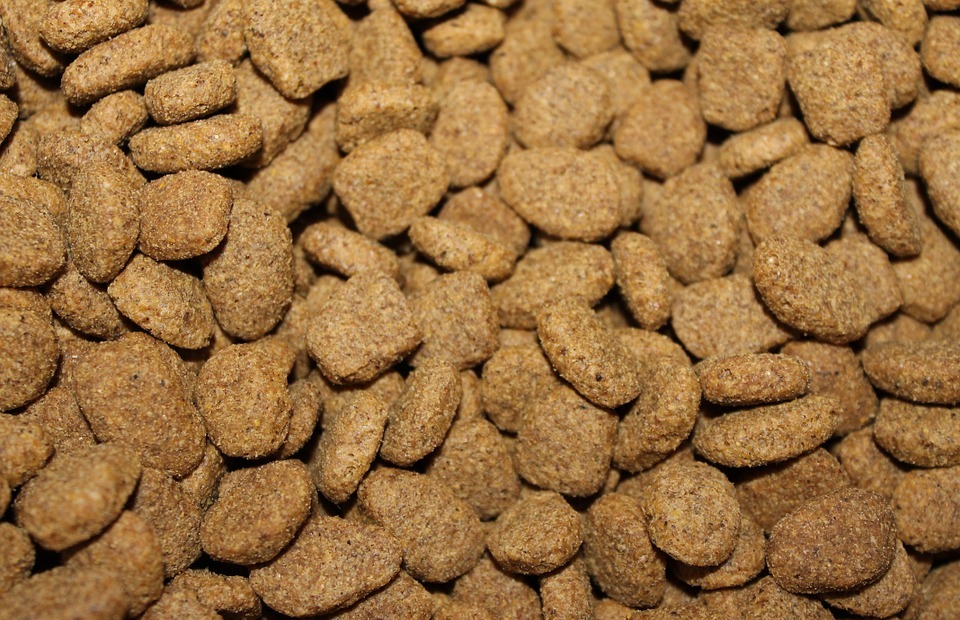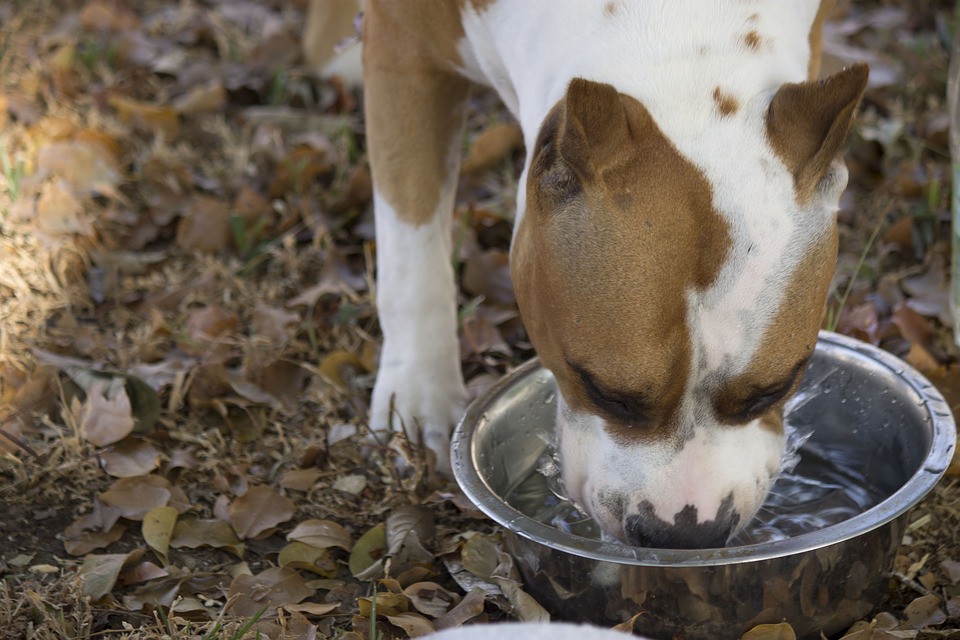Tuna, a beloved seafood enjoyed by humans worldwide, often sparks curiosity amongst dog owners. The question of whether dogs can safely partake in this delectable fish arises frequently. This comprehensive guide delves into the intricacies of tuna consumption for dogs, exploring its potential benefits and risks, and providing valuable insights to ensure your furry friend's well-being.
Part 1: Tuna – A Delectable Treat or a Potential Threat?

1.1 Nutritional Value of Tuna for Dogs
Tuna boasts a rich nutritional profile, offering essential nutrients for dogs, including:
High-Quality Protein: Tuna provides a readily digestible source of protein, vital for muscle growth, repair, and overall health. It assists in maintaining a healthy weight and building lean muscle mass.
Abundant Omega-3 Fatty Acids: Tuna is a treasure trove of omega-3 fatty acids, specifically EPA (eicosapentaenoic acid) and DHA (docosahexaenoic acid). These fatty acids play a crucial role in promoting healthy skin, a shiny coat, and optimal brain function. They also contribute to reducing inflammation and supporting joint health.
Vitamin D Boost: Tuna contains vitamin D, essential for calcium absorption and bone health. It helps prevent conditions like rickets, a disease characterized by weakened bones.
Selenium Source: This mineral acts as a potent antioxidant, protecting cells from damage caused by free radicals. Selenium plays a vital role in immune function, thyroid health, and reproductive health.
Additional Vitamins and Minerals: Tuna also offers a range of other essential vitamins and minerals, including niacin, vitamin B12, and phosphorus, contributing to overall well-being.
1.2 Potential Risks of Tuna Consumption for Dogs
While tuna offers nutritional benefits, its consumption also carries certain risks:
Mercury Content: A Serious Concern Tuna, especially larger species like albacore, can accumulate high levels of mercury, a heavy metal that can be toxic to dogs. Mercury poisoning can lead to a range of serious health problems, including neurological damage, impaired kidney function, and developmental issues.
High Sodium Content: A Challenge for Some Tuna, particularly canned varieties, is often high in sodium. Excessive sodium intake can be harmful to dogs with pre-existing health conditions like heart disease or kidney disease. It can also lead to dehydration, increased thirst, and urinary problems.
Allergic Reactions: An Unforeseen Risk Some dogs may experience allergic reactions to tuna, resulting in symptoms like vomiting, diarrhoea, itchy skin, and even anaphylaxis. It's crucial to monitor your dog carefully after introducing tuna to identify any potential allergic reactions.
Digestive Issues: A Potential Discomfort Consuming large quantities of tuna can upset a dog's digestive system, leading to gastrointestinal distress, including diarrhoea, vomiting, and abdominal pain.
Bones and Skin: Potential for Irritation Tuna bones can be a choking hazard for dogs, and consuming tuna skin can lead to digestive upset or irritation.
Part 2: Tuna in Moderation: The Key to Safety

2.1 The Importance of Moderation
The key to safe tuna consumption for dogs lies in moderation. Occasional small servings of tuna can provide nutritional benefits without posing significant risks.
2.2 Choosing the Right Tuna: Ensuring Quality and Safety
Canned Tuna: A Convenient Option with Considerations Opt for tuna packed in water, not oil, to reduce fat and sodium content. Choose brands with low mercury content and avoid varieties containing added salt, spices, or preservatives.
Fresh Tuna: A Healthier Choice with Preparation Precautions Fresh tuna is a healthier choice, but ensure it's cooked thoroughly to eliminate any potential parasites. Avoid raw tuna as it can carry bacteria harmful to dogs.
Avoid Tuna Products: Not Suitable for Canine Consumption Processed tuna products like tuna salad and tuna sandwiches should be avoided as they typically contain ingredients harmful to dogs, including onions, garlic, and mayonnaise.
2.3 Serving Tuna Safely: Ensuring Responsible Consumption
Portion Control: A Vital Element Offer a small amount of tuna, no larger than a teaspoon, as an occasional treat. Never feed tuna as a meal replacement.
Cooked and Unseasoned: Essential for Canine Health Ensure tuna is thoroughly cooked and devoid of any seasonings or additives. Seasonings like salt, pepper, herbs, and spices can be toxic to dogs.
Observe for Reactions: Vigilance is Key Watch your dog closely after consuming tuna for any signs of adverse reactions, such as vomiting, diarrhoea, itching, or lethargy.
Part 3: Tuna for Specific Dog Breeds

3.1 Certain Breeds at Higher Risk
Some dog breeds are more prone to mercury toxicity than others due to their smaller size, developmental stage, or pre-existing health conditions:
Small Breeds: Smaller dogs are more susceptible to mercury poisoning due to their smaller body size. Smaller dogs may accumulate higher levels of mercury per unit of body weight.
Puppies and Senior Dogs: Puppies and senior dogs are more vulnerable to the effects of heavy metals like mercury. Their developing or aging systems may be more sensitive to toxins.
Dogs with Pre-Existing Conditions: Dogs with liver or kidney problems may be more sensitive to mercury toxicity. These organs play a vital role in detoxification, and compromised function can impair their ability to process heavy metals.
3.2 Consult Your Veterinarian: Personalized Guidance for Your Dog
Always consult your veterinarian before introducing tuna to your dog's diet, especially if your dog belongs to a breed considered at higher risk. They can provide personalized advice based on your dog's health, breed, and individual needs.
Part 4: Recognizing Signs of Tuna Toxicity
4.1 Symptoms of Mercury Poisoning: Identifying Potential Issues
Mercury poisoning can manifest in various symptoms, including:
Loss of Coordination: Difficulty Maintaining Balance Dogs may exhibit difficulty walking, stumbling, or losing their balance.
Tremors: Involuntary Muscle Movements Shaking or trembling, particularly in the legs or head, can be a sign of mercury poisoning.
Seizures: Uncontrolled Muscle Spasms Severe mercury poisoning can lead to seizures, which involve uncontrolled muscle spasms and loss of consciousness.
Blindness: Partial or Complete Vision Loss Mercury can damage the optic nerve, leading to partial or complete blindness.
Neurological Damage: Cognitive Decline and Behavioural Changes Mercury poisoning can cause neurological damage, resulting in cognitive decline, personality changes, and behavioural issues.
4.2 Addressing Mercury Poisoning: Seeking Prompt Veterinary Attention
If you suspect your dog has consumed a large amount of tuna or shows signs of mercury poisoning, seek immediate veterinary attention. Early diagnosis and treatment are crucial for minimizing the severity of the poisoning.
Part 5: Alternatives to Tuna for Dogs
5.1 Fish Rich in Omega-3 Fatty Acids: Healthier Choices for Canine Consumption
Several fish alternatives provide dogs with the same health benefits as tuna, with lower mercury content:
Salmon: A Popular and Nutritious Option Salmon is a popular choice, offering omega-3 fatty acids, protein, and vitamin D. It's a good source of astaxanthin, an antioxidant that contributes to healthy skin and coat.
Sardines: A Small but Powerful Fish Sardines are another excellent source of omega-3 fatty acids, packed with calcium and phosphorus. They also contain vitamin D and are a good source of protein.
Mackerel: A Versatile Fish with Health Benefits Mackerel provides omega-3 fatty acids, vitamin B12, and selenium. It's a good source of protein and is often considered a sustainable choice.
5.2 Other Omega-3 Sources: Plant-Based Alternatives
Besides fish, other sources of omega-3 fatty acids include:
Flaxseed Oil: A Plant-Based Omega-3 Powerhouse A plant-based source of omega-3 fatty acids, ideal for dogs with fish allergies. It's also a good source of fibre, which can support digestion.
Chia Seeds: Tiny Seeds, Big Benefits Chia seeds are rich in omega-3s and offer various other health benefits, including fibre, protein, and antioxidants. They can be added to food or mixed with water for a nutritious drink.
Part 6: Tuna as a Training Treat
6.1 A Treat to Avoid: Prioritizing Canine Health
Tuna should be avoided as a regular training treat due to its potential risks, including mercury toxicity and digestive upset.
6.2 Safer Training Treats: Healthy and Appealing Choices
Numerous healthier and safer alternatives exist for dog training:
Dog-Specific Treats: Designed for Canine Needs Commercial treats specifically designed for dogs, often low in calories and high in nutrients. Choose treats that are grain-free, hypoallergenic, or made with natural ingredients.
Fruits and Vegetables: Nature's Delights for Dogs Apples, bananas, carrots, and green beans are delicious and nutritious treats for dogs. They provide fibre, vitamins, and minerals without the risks associated with tuna.
Cooked Meat: A Protein-Packed Treat Small pieces of cooked chicken, turkey, or lean beef can be used as training treats. Ensure the meat is cooked thoroughly and free of bones.
Part 7: FAQs
7.1 Can Dogs Eat Tuna Every Day?
It is not recommended to feed tuna to your dog daily. Frequent tuna consumption increases the risk of mercury accumulation and other potential health problems.
7.2 Is Canned Tuna Safe for Dogs?
Canned tuna can be safe for dogs in small amounts, but always opt for varieties packed in water and avoid those containing oil, salt, or other additives. Check the label for mercury content and choose brands with lower levels.
7.3 Can Dogs Eat Raw Tuna?
Raw tuna can pose a risk to dogs due to potential parasites and bacteria. It's always best to cook tuna thoroughly before feeding it to your dog.
7.4 What If My Dog Ate Tuna?
If your dog has consumed a small amount of tuna, monitor them for any signs of adverse reactions. If you suspect they have ingested a large amount or show symptoms of mercury poisoning, seek veterinary attention.
7.5 How Much Tuna is Safe for Dogs?
The safe amount of tuna for a dog depends on their size and individual health. As a general rule, limit tuna consumption to a small portion, no larger than a teaspoon, occasionally as a treat.
7.6 Is Smoked Tuna Safe for Dogs?
Smoked tuna should be avoided as it typically contains high levels of salt and other preservatives that are harmful to dogs.
7.7 Can Dogs Eat Tuna Juice?
Tuna juice is not recommended for dogs. It often contains high levels of sodium and other additives that can be detrimental to their health.
7.8 Is Tuna Good for Dogs' Coats?
Tuna can be beneficial for a dog's coat due to its omega-3 fatty acids. However, consider other sources of omega-3s like salmon or flaxseed oil for a healthier and safer option.
Everyone is watching
-

Can Dogs Eat Bananas? A Guide to Safe Treats
DOGS & PUPPIESThis comprehensive guide will delve into the world of canine nutrition, focusing on the popular question: can ...
-

Can Dogs Eat Oranges? (Is It Safe or Toxic?)
DOGS & PUPPIESThis article delves into the question of whether dogs can safely consume oranges. We'll explore the nutrition...
-

Can Dogs Eat Grapes? The Shocking Truth About This Fruit
DOGS & PUPPIESThis article delves into the controversial topic of grapes and dogs, exploring the potential dangers associate...
-

Why Do Dogs Eat Poop? Understanding Coprophagia in Dogs
DOGS & PUPPIESThis article delves into the perplexing phenomenon of coprophagia, the act of eating faeces, in dogs. We explo...
-

Can Dogs Eat Shrimp? A Guide to Safety and Risks
DOGS & PUPPIESThis comprehensive guide dives into the world of shrimp and dogs, exploring the potential benefits and risks a...
